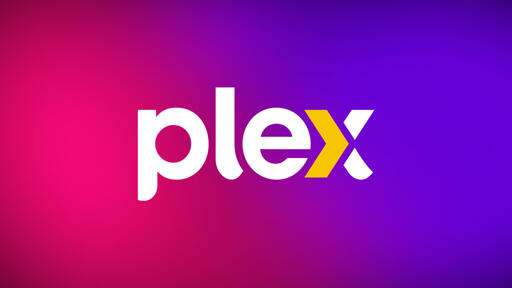We are also changing how remote playback works for streaming personal media (that is, playback when not on the same local network as the server). The reality is that we need more resources to continue putting forth the best personal media experience, and as a result, we will no longer offer remote playback as a free feature. This—alongside the new Plex Pass pricing—will help provide those resources. This change will apply to the future release of our new Plex experience for mobile and other platforms.
Alright, so I have had Jellyfin installed for years now, but my primary issue is that most devices myself or my users use lack official, readily-available clients. For example, the Samsung TV app is a developer mode install. Last I looked, nobody has put a build into the store.
I really want to use Jellyfin, but I feel like my users simply can’t. I’m interested in others’ experiences here that could help.
I mean, except for Tizen OS isn’t most available? You can find the client for Android, Android TV, Windows, Linux (Flatpak), macos, apple ios, and more.
https://jellyfin.org/downloads/clients/Don’t ever connect a “smart” tv to the internet. It’s only going to become shit and steal your data.
Raspberry Pi, old pc or any kind of other external player will always be better for connectivity and control.
I agree, but having looked down this road, finding a quality external player that users will understand and is inexpensive is … not easy.
If you’re an Apple user the AppleTV is exactly this. It’s probably Apple’s most fairly priced computing device.
I mean that literally appletv. Barely costs more than a Roku and is vastly better than every other device on the market.
I like my Shield TV: https://www.nvidia.com/en-us/shield/shield-tv/
I did need to install a custom launcher on it when the standard AndroidTV launcher added ads.
True, but there’s not much one can do about others’ stubbornness. I’ve been using cheap Android boxes with Kodi or the JF client installed. They make sense to my non-techie family. Dedicated boxes are better (something that can run CoreELEC, OpenELEC) but those are harder to find.
Roku does it well enough. not perfectly but it’s still not as shit as my Google tv
$20 Walmart Onn 4k. Degoogle it if you want or just slap smarttube and jellyfin/plex on it.
Pi running Kodi/libreelec
While I agree with you 100% and every tv in my home is under this mantra I get where the parent comment is coming from. Family members and friends visiting have asked about access to my Jellyfin library and they aren’t necessarily keen on buying additional hardware, aren’t willing to educate themselves on setting up options that would be objectively better for connectivity, privacy, control, etc.
They just want an app in their TVs app store. It’s convenient and easy. I disagree with them but I don’t blame them. It’s human nature to go for the option that results in expending the least amount of effort. But then they don’t get my sweet Jellyfin library. If you cant run the client or kodi then I can’t help you, sorry.
A Chromecast TV device might fill your gap. There is a jellyfin android TV build in the app store and it works with every TV. Just costs about 50 dollarydoos
I had the same experience with my parents. They have a Samsung TV and the Jellyfin experience was awful.
I ended up getting them a little N100 mini pc and installed Bazzite and the Jellyfin app from Flathub. You can configure it so it knows it’s on a TV, and responds to keyboard controls. I got them a remote from a company called Pepper Jobs that gives keyboard input and now they have a great experience with it. Even my mom, who’s a big technophobe, loves it.
My dad also has an LG TV in his workshop that doesn’t have a working Jellyfin app (cause it’s ten years old), and he uses the Jellyfin app for his Xbox on that one.
I love Jellyfin, but I always find something that I have a problem with when trying it, for example it has weak searching, tagging, and TV show identification compared to Plex.
I tried using it even as recent as yesterday for some searching and tagging, but it’s searching, tagging, and even TV show identification has problems and is weak in comparison to Plex. I couldn’t mass-tag certain videos which was annoying for me, I had to do it one-by-one and it ended up taking a long time, that was frustrating. Also, tags don’t show up in searches anymore because it hurts performance apparently. With that said, maybe Plex has the same limitation, but it doesn’t mean that Jellyfin has to. They are open-source, and they can be better than Plex, and in many ways they already are, but I keep running into pain points with how I want to use it, and it does feel a bit unfortunate. With that said, I’m a developer too, so I know it’s not always that simple. It’s just in some ways it feels less “complete” than Plex.
I’m still really pleased with Jellyfin though, and especially the future potential of it.
I run an Android TV box on my Smart TV, because I don’t trust them on the internet.
I can speak from my experience with an Apple TV, the application “Infuse” works amazing with a jellyfin server. Though the application is essentially $1 month subscription, but works across all your apple devices, if you have any. I think it’s worth it.
Additionally, the official app for Android TV worked pretty well when I last tried it on an Nvidia Shield
I use Jellyfin client on my new Samsung TV via a Google TV dongle (ONN tv, $25 at Walmart). Seems to work well.
My only complaint is the stream volume has been very low after a recent update. Downsampling helps but seems like it shouldn’ t be necessary.
You can access Jellyfin through a browser, too. Is that an option for the Samsung TV?
I’ve never had an issue with the apps. It’s on my Chromecast and my android phone, and I typically stream to the TV from my phone.
My only issue is that they require a real cert (which is good tbh) and I am having trouble getting letsencrypt working due to my isp blocking port 80 and me dragging my feet getting DNS working
The only major pain point I had with Jellyfin was getting it on my Samsung TV yes. It is absolutely not a good recommendation for people with Samsungs unless they’re willing to get their hands very dirty. Now, once I got the app side loaded on there, it works perfectly well, but the process sucked ass.
Yeah.
Jellyfin is spectacular for LAN usage on two computers. Once you start using devices (because, you know, that is what people tend to plug into their TVs…) or going on travel, it rapidly becomes apparent that it just isn’t a competitor.
Hell, a quick google suggests jellyfin STILL doesn’t have caching of media for offline viewing. Plex’s works maybe 40% of the time but… 40% is still higher than 0%.
I have a lifetime pass for Plex and encourage anyone who even kind of cares to get one next time it is on sale (or shortly before the scheduled price hike). I have tried Jellyfin a few times over the years and… it is basically exactly what I hate with FOSS “alternatives”. It isn’t an alternative in the slightest but people insist on talking it up because they want it to be and that just makes people less willing to try genuinely good alternatives.
To put it bluntly, Plex is an “offline netflix” as it were. Jellyfin is a much better version of smbstation and all the other stuff we used to stream porn to our playstations back in the day.
any recommendations to get it to work remotely? the good thing about plex was it was easy to set up, but the quality was medicore.
Before now I was on the sunk cost fallacy of not wanting to teach my extended family how to use Jellyfin instead of plex but after this I’m already mid-way through setting up a Jellyfin docker container on my server and I only found out an hour ago
I’ve been testing out jellyfin for the last couple months but it doesn’t really fill the void of this specific feature that’s being locked behind a pay wall. If anyone has good recommendations for securely and reliably hosting jellyfin behind SSL and auth with email password resets where I don’t have to worry about it as much as Plex.
I use jellyfin locally but for a handful of remote clients I have I may well block off their access they’re not going to be able to figure out my hand spun services and wall of text.
Jellyfin is still way behind Plex in general performance but I keep a VM of it running and updated, for when the day comes that Plex is absolutely worthless.
Which at this rate, is, well, we’re getting there.
Alas my TV (LG WebOS 2) doesn’t have an application for Jellyfin, or I’d have switched years ago :-(
Is there an emby app available or Kodi? The base of Jellyfin should work in either. Plug and play as far as I’m aware with maybe some issues for certain versions.
Jellyfin depends on proprietary Microsoft .NET, even on Linux.
It’s still better than Plex and Emby, which are fully proprietary, and have no source code. But I will stick with sshfs with kodi, and nginx plus mpv for now.
As a result I imagine more users will look at other offerings such as Jellyfin.
https://github.com/jellyfin/jellyfin
https://jellyfin.org/I’m not pirating a bunch of shows just to pay Plex for the privilege of watching it.
I have a lifetime plex pass so this does not really affect me but I expect the trend of degrading experience to continue. I would have switched to Jellyfin a long time ago but I am dreading contacting everyone I share with and getting them migrated.
Hellooooo jellyfin!
Only use open source software
Jellyfin + Tailscale, the perfect combination.
deleted by creator
The ability to watch from anywhere.
Install on the Jellyfin server and share that server (or just the IP with the Jellyfin port) with whoever you want. Now they have access to Jellyfin and Jellyfin only.
That’s how I set stuff up for friends and family.I don’t have a static IP adress, so I use Tailscale to connect remotely to my Jellyfin server (located at home).
deleted by creator
Jellyfin is figgin Great 😃👍
They do not have chromecast support. (Atleat the last time i checked) Thats a deal breaker for me, would love to use it.
I run Jellyfin on Chromecast with Google TV every day, it works super well.
Unless you mean casting from your phone, then I don’t know.
I will check it out!
IIRC it has it. Not if you’re behind VPN or a tunnel. Only over HTTPS.
Hmm i need to revisit it again. Thanks!
I just confirmed it has it. You need to be on the same subnet, which is why VPN won’t work. But then everything shows up as castable
deleted by creator
Yes, it does introduce insecurity, so not for everyone. I have it behind a domain on cloudflare (let’s encrypt cert) with nginx reverse proxy
deleted by creator
Yes, it took me a long time to figure it out. Which is why Plex feels comfortable charging for it
deleted by creator
… I’m using Chromecast and Google TV, though Chromecast isn’t very good, really, and Google TV stared showing commercials every now and then since a while ago, so that too will be on its way out.
But yeah, they’re supported
If you don’t like the price there’s always jellyfin.
Got to say that I have been very happy with it.
Glad I bought the Plex Pass like 13 years ago. While I understand everyone seems to think everything should be free, I’m sure your boss wishes you worked for free too, but the world doesn’t work that way.
I’m OK supporting products I use , and Plex is an example of this for me. It was a well spend $75 in 2013
As a plex pass lifetime user, this doesn’t change anything for me.
I am, however, blown away that the price went from $75 CDN to $350 CDN over the last 10 years!! That’s just insane!
I’m surprised by the resistance to Jellyfin in this thread. If you are using Plex, you’re already savvy enough to use bittorrent and probably the *arrs. If you can configure that stuff, Jellyfin is absolutely something you can handle. If you like Docker, there’s good projects out there. If you’re like me and you don’t understand Docker, use Swizzin community edition. If you can install Ubuntu or Debian, and run the Swizzin script, you’re in business.
The big thing for me with plex is user management. I am absolutely knowledgeable enough to set up jellyfin, but i dont want to deal with user management. Plex makes it easy, i tell them to make their own account and i just share my library. i dont have to reset passwords, they can do that themselves. However, it’s getting to the point where i will probably just switch to jellyfin and deal with it because of how bad plex is getting.
I’m only sharing access with a few friends and family, so I don’t find it cumbersome. Usually I make their account using the Jellyfin app on my phone. I do sympathize with not wanting to do support, which is the main reason I don’t even ask for help with the hosting costs. I don’t want to feel any obligation.
deleted by creator
I just setup jellyfin and it totally is the same. Install. Point it to a media folder. Setup port forwarding.
deleted by creator
That ease of outside LAN access poses a big risk tho. Plex can and eventually probably will share, be forced to share, get hacked etc Those cloud accounts imply the possibility of very detailed reports about who’s streaming what, when, where, from which source…
deleted by creator
But let’s be honest - it really is not complicated. That was a one minute configuration in my router.
One minute for you and me, but that sort of thing just isn’t feasible for many even if they have someone walking them through it over the phone.
deleted by creator
Ok, that is a totally different use case than mine. I’m one of those guys browsing a selfhosting community on the fediverse and I only want to stream my own stuff to my mobile and provide my wife with audiobooks. If you’re providing a bigger group of people with streaming services, who are not tech savvy, another software might be the better solution. But that doesn’t mean that Jellyfin is bad - it’s just another use case with different requirements
deleted by creator
Me too. Docker isn’t hard if you use a compose file. It’s easy to read syntax.
Linux server.io has great documentation for their images.
I have Jellyfin and Plex running from the same virtual machine pointing at the same media. If it wasn’t for the one crappy TV I have in my house with no Jellyfin client, Plex would be gone.
Docker isn’t hard if you use a compose file. It’s easy to read syntax.
This is giving me “yaml isn’t hard to use if you use a compose file!” It is, actually. It’s easy for you because you understand the technology. The vast majority of people do not.
Of course. But if you managed to setup Plex then you’ve already shown you have willing to learn…
I think I represent a huge portion of Plex users; I am tech savvy enough to follow a simple walkthrough on YouTube to get my server setup. But the arrs, jellyfin, and docker both look like graduate level chemistry to me.
Plex has been around for ages and they have put money into making things easier for users like me to understand with events such as Pro Week and directly paying content creators to dumb things down for me.
It’s quite easy without docker to get lots of it running with a dietpi install. Runs on rpi and alike, but also on any “normal” old low end pc. Just select jellyfin, arrs, … It handles it all for you, no need to learn Docker (I know people will argue about the advantages of docker, which are valid points, but ease of installation is more important to many people). The only difficulty remains the streaming outside your own LAN (because it’s risky). VPN, tailscale, … there’s options but it always keeps on feeling risky to open up outside LAN. Local setup for jellyfin can be really really easy tho, if it’s just for yourself and you mostly watch at home anyway… And in some jellyfin compatible app like Finamp and Streamyfin you can just download a few music albums, episodes or movies to your phone before you travel…
I’ve got to admit that I’ve never used Plex (I’m a cantankerous open software fanatic), but how do you get your media on there? You’re hosting your own server so presumably you’re downloading the media somehow. Are you doing it manually? If so, you can do the same with Jellyfin. Is it automated with some tool built into Plex?
I’m ripping it with makemkv, actually. I have a fairly large blu ray collection that is slowly going onto my DAS.
I’ve been meaning to set up a homeserver with plex recently but will defnitely go for jellyfin now that I read this thread.
Can’t say I have a huge issue with this - Plex isn’t FOSS and the infrastructure to make this happen isn’t free. Other options are available if you don’t want to pay the fee.
But what infrastructure does this feature require? I’m direct connecting to my own personal server with perhaps credential handling and a handshake handled by Plex servers to connect. None of the media is passing through their servers - or it shouldn’t be if it is.
In a nutshell, if your app isn’t able to make a direct connection to your Plex Media Server when you’re away from home, we can act as sort of a middle man and “relay” the stream from your server to your app. To accomplish this, your Plex Media Server establishes a secure connection to one of our Relay servers. Your app then also connects securely to the same Relay server and accesses the stream from your Plex Media Server. (In technical terms, the content is tunneled through.)
So, your Plex Media Server basically “relays” the media stream through our server so that your app can access it since the app can’t connect with your server directly.
Source: https://support.plex.tv/articles/216766168-accessing-a-server-through-relay/
It’s not a requirement to stream and it’s sort of dumb they are lumping this relay service as a part of the remote streaming. Remote streaming should be allowed for free - if you are not a subscriber. The relay should just be a paid service, which makes sense. But if it’s a direct connection to my server, it should be free.
That being said, I understand how Plex may have built some technical debt into this relay system. It might be hard for them to decouple the relay from the remote streaming. What they should have done is:
We are removing the relay service as a free service, but you can still do remote streaming with a direct connection.
And they should have built their architecture in a way that’s easy to decouple the two services.
Thanks for that - I wasn’t aware of the relay service, but completely agree that this is what they should be charging for and not the remote play feature in its entirety. I’ll probably drag it out for a while by refusing to update the app and server… Might be able to make it work with Tailscale as others have suggested.
In the past I’ve paid for a month or two when I wanted to download to my devices remotely (and I think that’s the singular feature that I’ve ever cared about in the Plex pass). But to take features away and then try and charge me for them is a bridge too far, I can’t support that bad behavior.
I paid for the lifetime membership ~6 years ago so I’m going to stick with it. Plus I just use it for my own home. It’s not like I’m serving a bunch of other clients. But I’ll switch to Jellyfin if the lifetime membership ever gets taken away.
I considered it when they warned about the increase and offered it at $75, but I just didn’t have the money to spend back then. Felt pretty stupid for not doing it, but I don’t even know what paid features they offer, and I’m clearly not missing them.
99% of my usage is at home as well, so this is unlikely to affect me - until that random 1% anyhow.
deleted by creator
deleted by creator
So glad i switched to jellyfin half a year ago
It looks like as long as the host has a Plex pass, this doesn’t change much. It is a regression of service, which sucks, but there are viable alternatives for those unable or unwilling to pay. And honestly, jellyfin is the clear winner in that case and always has been.
Now, if they start to charge my friends and family for access to my media after I have already paid them for their lifetime subscription, then I’ll grab a pitchfork with the crowd.
Also, why not run both and be ready? The resources required are minimal if you’re running via docker, just some extra RAM and a negligible amount of compute for overhead on library maintenance tasks.
This is the best ad campaign Jellyfin could have asked for.
I already pay for plex pass but I’m going to start looking into jelly fin out of principle. I will not support the enshitification of a service I use and this is how it starts. Soon they will have tiered subscriptions and then the cheap one will be taken away and the cheapest paid one will be stuffed with ads then all tiers will be stuffed with ads then they will jack up prices again or charge more for sharing with family or block it all together to force your family to get their own sub and the circle of enshitification will be complete.
I run both on the same media sources. Works great. Some movies even seem to buffer quicker via Jellyfin than Plex
Good to know. Being able to run both at the same time will probably help ease the transition.
I main Jellyfin now. I still have Plex for one device that has no Jellyfin client available. But indeed they run side by side sharing the same media.
Worth doing as Plex will keep getting shitter















